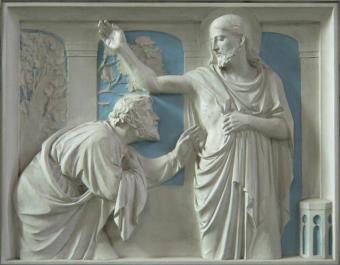Redbaron
Pirate fan since the dark ages
- Pronouns
- He/Him/His
This from a Pantheos newsletter. It seems appropriate for today, as it mirrors the Lectionary Gospel reading for today, John 20:19-31.
What do you think?

 www.patheos.com
www.patheos.com
What do you think?

Why Doubt Is My Favorite Virtue
Today's gospel is focused on Doubting Thomas, the guy who entered the disciple's Hall of Shame because he refused to believe reports of Jesus' resurrection until he could see and handle Jesus in the flesh himself. And Thomas is one of my spiritual heroes.
